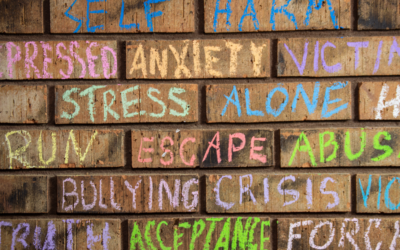In the ever-evolving landscape of today’s world, parenting has taken on new dimensions, presenting us with unique challenges that test our emotional resilience and mental well-being. The role of a parent has always been complex. Still, the uncertainties of the global community can make every decision feel like a tightrope walk, and finding the right balance between responsibilities and personal relationships can become an overwhelming endeavor. In this journey, it’s important to recognize that you’re not alone, and the struggles you face are shared by many. Let’s delve into the rollercoaster of emotions that modern parenting entails and explore how we can navigate this path with compassion and support.
The Burden of Decision-Making: Feeling Lost in a Sea of Uncertainties
In an age of information overload and rapidly changing norms, it’s no wonder that parents often feel that no decision is correct. From choosing suitable schooling options to managing screen time and navigating social media challenges, every choice can carry an immense weight. The constant bombardment of differing opinions and advice can leave you questioning your instincts and feeling like you need to do more.
We also can’t discount the influence of our global community: news of economic uncertainties, climate change, and political unrest can heighten our anxieties, compounding the stress of parenting. It’s okay to acknowledge these feelings of uncertainty and vulnerability. Remember that predicting every outcome is impossible, and perfection is an unattainable goal. Embracing the idea that you’re doing your best with the information you have can provide a sense of relief and release some of the pressure you’re placing on yourself.
Balancing Parenthood with Responsibilities and Personal Relationships: The Delicate Act
As a parent in today’s fast-paced world, juggling all of our obligations and maintaining meaningful relationships can be challenging. Modern parenting is marked by many demands that reflect the evolving world. Balancing work, family time, and children’s needs requires time management. Critical considerations include navigating technology’s influence, making education choices, and ensuring online safety. Financial pressures, work-life balance struggles, and being an emotional support also weigh heavily. Parents must guide children’s physical health, emotional development, and nutritional choices while nurturing their mental well-being.
Additionally, fostering cultural awareness, sustaining social connections, and adapting to rapid societal changes are crucial for raising well-rounded children. Amidst these demands, practicing self-care becomes paramount to prevent burnout and maintain a healthy equilibrium. Seeking support and embracing adaptability are key to navigating the intricate landscape of modern parenting.
Moreover, don’t forget the importance of nurturing your relationship with your partner. Maintaining open communication and finding time for each other amidst the chaos can strengthen your partnership and provide a stable foundation for your family. It’s important to keep in mind that reaching out for support from loved ones or even trained therapists is a courageous act, not a sign of weakness.
The Space to Grow vs. Detachment: Struggling with Letting Go
As parents, we want nothing more than for our children to grow up happy, healthy, and successful. However, as they become more independent and start to navigate the world on their own, it can be difficult to know how much guidance to give them. We want to protect them from harm, but we also want to give them the freedom to learn from their mistakes and grow into capable adults.
Finding the right balance between providing guidance and allowing our children to explore independently can be a challenging task. On one hand, we want to be there to support them and offer words of wisdom when they need it. On the other hand, we don’t want to hover over them and stifle their ability to learn and grow on their own.
The key is to be present and engaged in our children’s lives without being overbearing. We need to offer guidance and support when they need it, but also give them the space and freedom to make their own choices and learn from their own experiences. By doing so, we can help them develop the skills and confidence they need to navigate the world on their own and become successful, independent adults.
Remember, our children are not extensions of ourselves. They are unique individuals with their own thoughts, feelings, and desires. As parents, it is our responsibility to help them discover who they are and who they want to be, while also ensuring their safety and well-being. With patience, understanding, and a willingness to learn, we can help our children grow and flourish into the best versions of themselves.
Feeling a rollercoaster of emotions is normal as your children spread their wings and venture out independently. From pride to excitement to worry, it’s all valid. The key is to stay connected with them through open conversations and to respect their need for independence. Finding common ground and understanding can build a strong bridge between maintaining a close bond and supporting their personal growth.
Embracing Compassion and Support on the Journey
As a parent, it’s completely understandable to feel overwhelmed at times. It can be difficult to navigate the unpredictable nature of the world, especially when you’re responsible for the well-being of your children. However, it’s important to remember that you’re not alone in your struggles. Many other parents are facing similar challenges and can offer valuable support and guidance.
One way to alleviate the pressure you’re feeling is to practice self-compassion. It’s natural to want to be the perfect parent, but it’s impossible to achieve that goal all the time. Giving yourself permission to make mistakes and acknowledging that parenting is a learning process can go a long way in reducing stress and anxiety.
Parenting in today’s environment requires flexibility, adaptability, and an abundance of love. By acknowledging the uncertainties, finding your balance, and embracing the challenges with compassion, you create a nurturing environment for yourself and your children. Remember that your journey as a parent is unique, and you have the strength to navigate it with grace and resilience.
Seeking Mental Health Support: A Crucial Step in Your Parenting Journey
In the intricate tapestry of modern parenting, seeking mental health support and treatment is a sign of strength and a vital component of nurturing a healthy family dynamic. Just as you prioritize your children’s well-being, it’s equally important to prioritize your own mental and emotional health. Let’s explore what seeking mental health support might look like and how it can profoundly impact your parenting journey.
Life’s challenges, including parenting responsibilities in today’s world, can often trigger feelings of stress, anxiety, or even depression. It’s important to recognize the signs that indicate you might benefit from seeking professional help. These signs can include:
Persistent feelings of being overwhelmed
If you feel like you’re always having a hard time keeping up with your daily tasks and responsibilities, and the pressure is becoming too much to handle, it could be a good idea to reach out for help.
Changes in mood
Experiencing significant changes in mood, such as sudden shifts from happiness to sadness or prolonged feelings of sadness without any apparent cause, could indicate an underlying issue that requires attention. Additionally, if you become easily irritated or frustrated with little provocation, it may also be worth exploring potential underlying causes.
Difficulty in personal relationships
Stress can affect relationships by causing communication breakdowns, feelings of isolation, and increased conflict. If you struggle to express yourself or find the right words, misunderstandings and frustrations can become common. Seeking support can help you find healthier ways to share your stresses and reconnect with loved ones.
Physical symptoms
Sometimes, mental health struggles manifest as physical symptoms like headaches, fatigue, or digestive issues. If medical reasons have been ruled out, exploring the emotional aspect with a mental health professional is recommended.
Lack of enjoyment
Are you losing interest in hobbies and activities that used to bring you joy? Feeling disconnected from things that once mattered to you? These may be signs that your stress is taking a bigger toll than before.
Taking the Step: What Mental Health Support Can Look Like
Therapy/Counseling
Personal issues can be difficult to navigate on your own, but seeking help through individual therapy can be extremely beneficial. You will have a safe and confidential space to openly discuss your thoughts and emotions with a skilled therapist. Through therapy, you can gain valuable coping mechanisms, fresh insights into your situation, and a sense of reassurance as you work through life’s challenges. With the guidance of a trained professional, you can work towards achieving greater emotional stability and overall well-being.
Support Groups
Connecting with other parents who are also seeking support in their parenting journey can be a great source of comfort and encouragement. Being a part of a community where you can share your experiences and learn from others who have gone through similar challenges can be truly empowering. Joining such a group can help you become a better parent while feeling a sense of belonging.
Medication
Sometimes, when it comes to taking care of our mental health, doctors suggest taking medicine as part of our treatment. It’s really important to have honest conversations with our doctor about the good and bad things that could come with taking medicine and what our concerns are. This way, we can make a smart choice and work with our doctor to devise a plan that works best for us as an individual.
Mindfulness Practices
Mindfulness can help you deal with stress and stay focused in challenging situations. This can be achieved through simple techniques like meditation, deep breathing exercises, and yoga. These practices can improve your mental clarity and overall well-being, helping you to feel more balanced and at peace. By incorporating these techniques into your daily routine, you can cultivate greater awareness and remain calm even when things get tough.
Online Resources
If you’re struggling to find in-person support, many trustworthy online resources are available. These include websites, forums, and apps that offer advice, coping strategies, and connections with others who are going through similar experiences. Depending on their services, these resources provide different types of support, from accessing mental health professionals and tools to help manage symptoms to mindfulness activities. It’s important to prioritize your mental health and well-being by utilizing these resources. Remember, you’re not alone, and there’s always help available.
Destigmatizing Mental Health Support: A Gift to Yourself and Your Family
As a responsible parent, taking care of your mental health is important so that your whole family can be happy and healthy. Getting professional help is a way to invest in yourself and be a good role model for your children. Asking for help doesn’t mean you’re weak or unable to handle things – it shows that you’re brave and committed to improving your family life. Taking care of your mental health gives you the tools you need to be the best parent you can be, creating a more positive and enjoyable family environment.
It’s really important to take care of your mental and emotional health just like you would take care of your physical health. If you’re a parent, remember that you can get help and guidance when you’re facing challenges with raising your children. Remember that you’re not alone and asking for help is okay. Seeking help is a sign of strength and can help you have a happier and healthier life. Whether you’re struggling with stress, anxiety, depression, or anything else, people and resources are available to help you. Take time to focus on your mental and emotional well-being and know it’s brave and commendable to ask for support and guidance.










